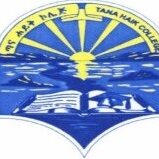The Academic Commission of Tana Haik College: Ensuring Academic Standards and Excellence
The Academic Commission at Tana Haik College plays a critical role in shaping the academic framework and policies that govern the institution. This key body is responsible for ensuring the college maintains high academic standards, supports quality education, and fosters an environment conducive to research, learning, and innovation.
Functions of the Academic Commission
The Academic Commission oversees various academic activities and policies at Tana Haik College. Its responsibilities include:
- Academic Policy Formulation: The commission develops policies related to academic programs, assessment methods, student progress, and faculty performance. These policies ensure that academic activities are well-structured and align with the college’s mission.
- Program Development and Review: The Academic Commission ensures that the academic programs offered at the college are up-to-date and relevant to current market demands. It plays a key role in the design, approval, and periodic review of undergraduate and graduate programs, ensuring they meet national and international standards.
- Monitoring Academic Quality: The commission is tasked with overseeing the quality of education provided at the college. It ensures that the courses, teaching methods, and student assessment procedures are consistent with the college’s goals for academic excellence. This involves regular evaluation of course content, instructional materials, and faculty performance.
- Research and Publication Oversight: The commission promotes and supports research activities at Tana Haik College. It sets guidelines for research projects, allocates resources for research development, and encourages faculty and students to engage in scholarly work that contributes to knowledge and community development. It also plays a role in the publication of research through academic journals and other platforms.
- Student Evaluation and Progress: One of the commission’s core functions is ensuring fair and transparent methods for evaluating student performance. It monitors how students are assessed in various programs, ensuring that assessments are rigorous and reflect the competencies students are expected to acquire. The commission also oversees the progression of students through their programs, including the approval of exam results and the conferral of degrees.
- Accreditation and Compliance: The Academic Commission ensures that all programs comply with national accreditation requirements and educational standards set by government and regulatory bodies. It also facilitates external audits and assessments to validate the college’s adherence to these standards.
Composition of the Academic Commission
The Academic Commission is composed of senior academic staff and administrative leaders who have significant experience in education and governance. The structure of the commission ensures representation from all key academic areas of the college, including:
- Vice President of Academic Affairs: Often the chair of the commission, the Vice President provides leadership in all academic matters and ensures that the commission’s recommendations are aligned with the college’s strategic goals.
- Deans and Heads of Departments: These leaders represent their respective faculties and departments, providing insights into specific academic needs, trends, and challenges.
- Senior Faculty Members: Faculty members with extensive teaching and research experience contribute to the commission by bringing their expertise in curriculum design, research, and pedagogy.
- Registrar: The Registrar’s Office plays a key role in managing student records, overseeing the administration of academic regulations, and ensuring compliance with national educational standards.
Committees and Working Groups
The Academic Commission often establishes specialized committees and working groups to handle specific academic matters. These committees focus on areas such as:
- Curriculum Development: This group works on designing and revising curricula to ensure academic programs remain relevant and forward-thinking.
- Assessment and Evaluation: This committee focuses on developing and refining assessment methods to ensure student evaluations are fair, consistent, and effective in measuring academic achievement.
- Research and Innovation Support: This group promotes research activities, providing guidelines and resources to enhance the quality and quantity of research output from the college.
Strategic Role in Institutional Growth
The Academic Commission is integral to the long-term development of Tana Haik College. It ensures that the institution remains competitive in the academic world by continuously improving its programs, policies, and teaching methods. The commission also facilitates collaboration between faculty, students, and external partners, fostering an environment where academic and research excellence can thrive.
Through its strategic oversight, the commission helps Tana Haik College adapt to changes in higher education, including shifts in market demand, technological advancements, and global academic trends. This adaptability ensures that the college remains a leader in education and continues to produce graduates who are well-prepared to contribute to society and the workforce.

